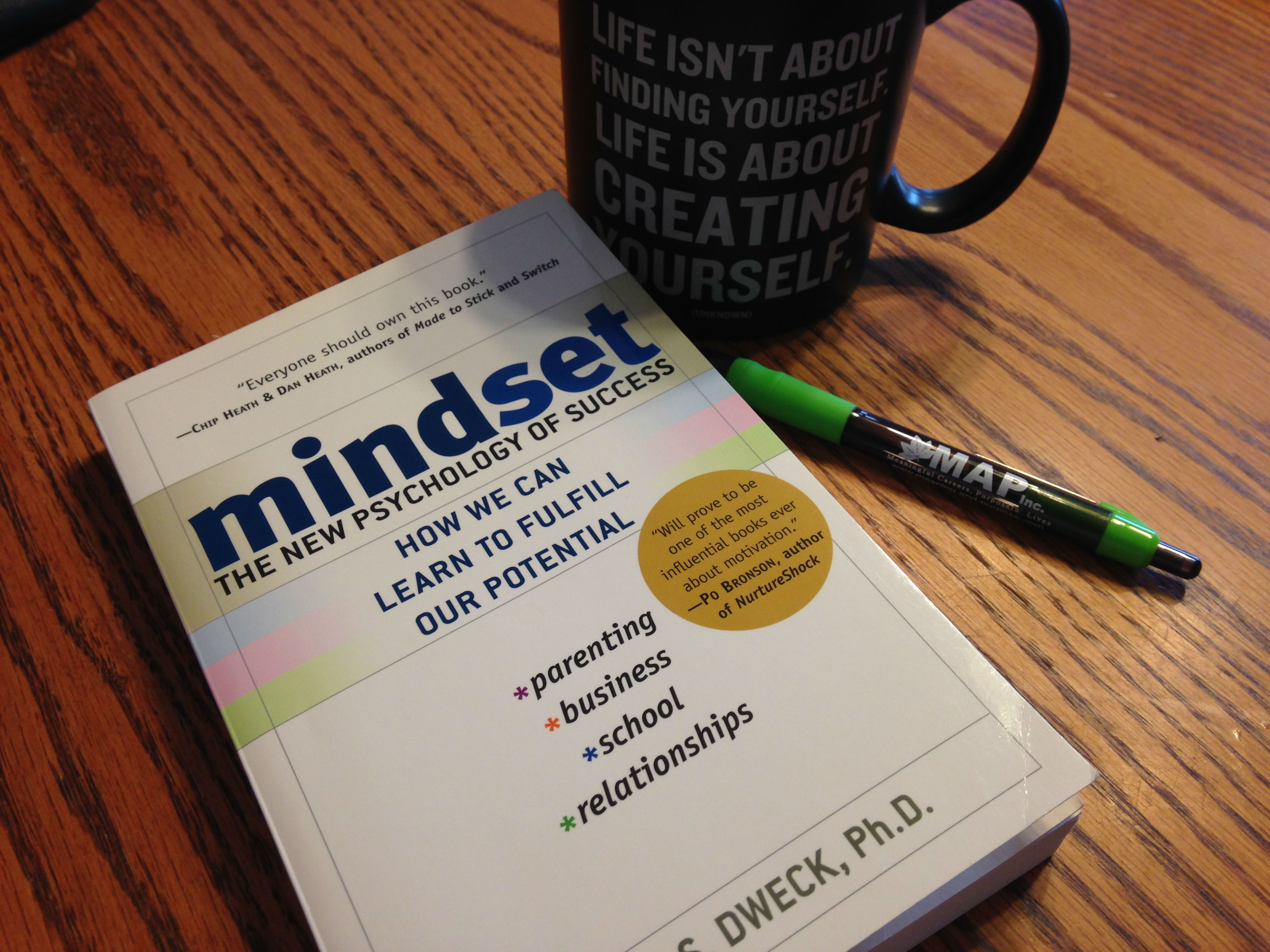
This article originally published by the Des Moines Business Record.
Imagine your day didn’t turn out quite like you planned: You got a C+ on your midterm, followed by a parking ticket on your car, then a brush-off from the friend you called for consolation. How would you likely respond?
A. Assume you’re a failure and that the world is out to get you. Take the day as further proof that you can’t seem to get things right. Do nothing about it other than perhaps eat, punch your pillow, or climb into bed.
B. Decide to study harder for the next exam, look at what you did wrong and resolve to do better, pay the ticket, and chalk the day up to “lessons learned.” You’re disappointed but ready to try again.
Your response may clue you into your mindset. And your mindset contributes to your entire outlook, well-being, relationships, level of success, and how you approach the world.
It also affects those around you – likely more than you realize.
I read Mindset by Carol Dweck with a parenting group a few years ago. The book prompted fascinating conversation not only about our children but also ourselves, spouses, teachers, and more.
Shortly thereafter, the book came up in a professional setting and resulted in similar conversation. Each time this book appears (and it is cited seemingly everywhere in business and self-help literature), a proverbial lightbulb seems to turn on.
The crux of Dweck’s research is actually quite simple. She describes two types of mindsets: fixed and growth. But in its simplicity lies one of the most profound learnings you’ll find in personal and professional growth.
If you have a fixed mindset, you likely base your success on winning, looking good, doing well. You tend to believe that qualities like intelligence and talent are innate and “tap out” at certain levels. If you can’t do something well, you might assume you just don’t have the “gift” for that particular activity and, as a result, may not even try it. Those with a fixed mindset tend to avoid challenge, not pay attention to feedback if it’s anything less-than-stellar, and feel threatened by others’ success.
With a growth mindset, on the other hand, you believe you can improve, change, and grow. You’re willing to try new things, and doing them poorly doesn’t stop you from trying again; you assume that with experience and practice you will get better. In the vignette that opens this article, which Dweck uses in her mindset research, you are more likely to respond in the way described in example B than example A. Those with a growth mindset tend to welcome challenge, see effort as a way to gain mastery, learn from criticism, and become inspired by and/or learn from the success of others.
Quite a difference, eh?
Dweck offers many examples of both mindsets and how they impact our success as leaders, parents, teachers, and friends. In addition, she provides ways to enhance the growth mindset by simply changing the way we talk.
For example, think about how you praise others. If your son aces an exam, telling him “You’re so smart! You have such a knack for science!” sounds nice, but can actually undercut his growth. What happens when he takes his history exam and doesn’t do so well? He may interpret that to mean that he’s not smart, or that he doesn’t have a knack for history so he might as well not even try.
Far better to praise the process: “Great job! You must have prepared well for this exam!” Highlighting a strategy, choice, or effort reminds them that they influence their destiny and can learn from all experiences. Such a small shift in how we communicate but, as Dweck shares with numerous examples in the book, those small changes can result in transformational results.
Every person I know who has read this book has expressed incredible insights gained. In fact, when I posted about it onFacebook while writing this article, the feedback was unanimously positive with many indicating they planned to pull out their copy and re-read it. If you lead, teach, coach, parent, or influence others, addMindset to your reading list. You will grow in self-awareness and be able to more readily help others do the same.
Fortunately, a growth mindset can be cultivated, encouraged, and modeled.
Start making growth-oriented conversation part of your routine at the dinner table or in your meetings: “What did you learn today?” “Where have you put forth a strong effort this week?” “What mistake did you make, and what did you learn from it?”
These types of questions emphasize learning, effort, and growth over “winning” and remind us of the role we play in our own success. This mindset empowers, energizes, and trickles into all facets of our lives!
How has your mindset helped – or hindered – your success? Share your thoughts below.
Dr. Christi Hegstad helps people make a positive difference in the world by coaching them to work, live, and lead with meaning and purpose. Learn more at www.meaning-and-purpose.com, Facebook at www.facebook.com/MAPIncFan, Twitter at www.twitter.com/DrChristiCoach, and (new!) Instagram at www.instagram.com/drchristihegstad.
Mindset by Carol Dweck, Ph.D. (Ballantine, 2006).





